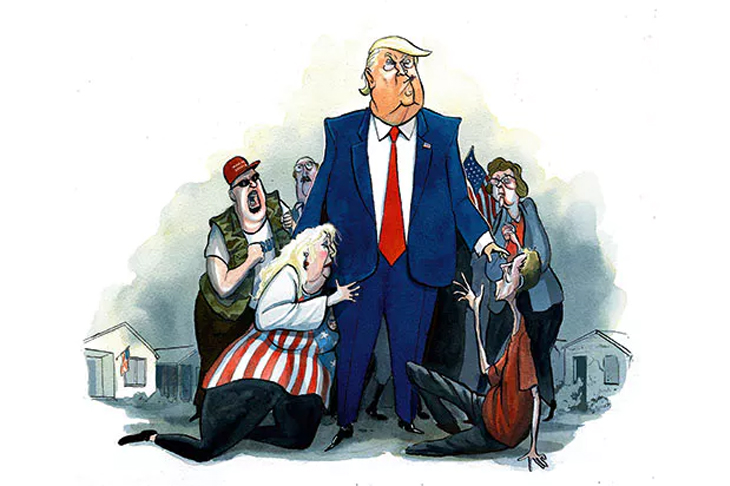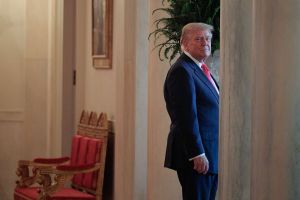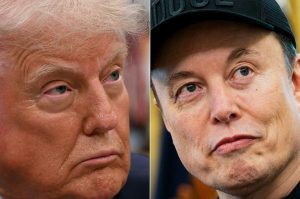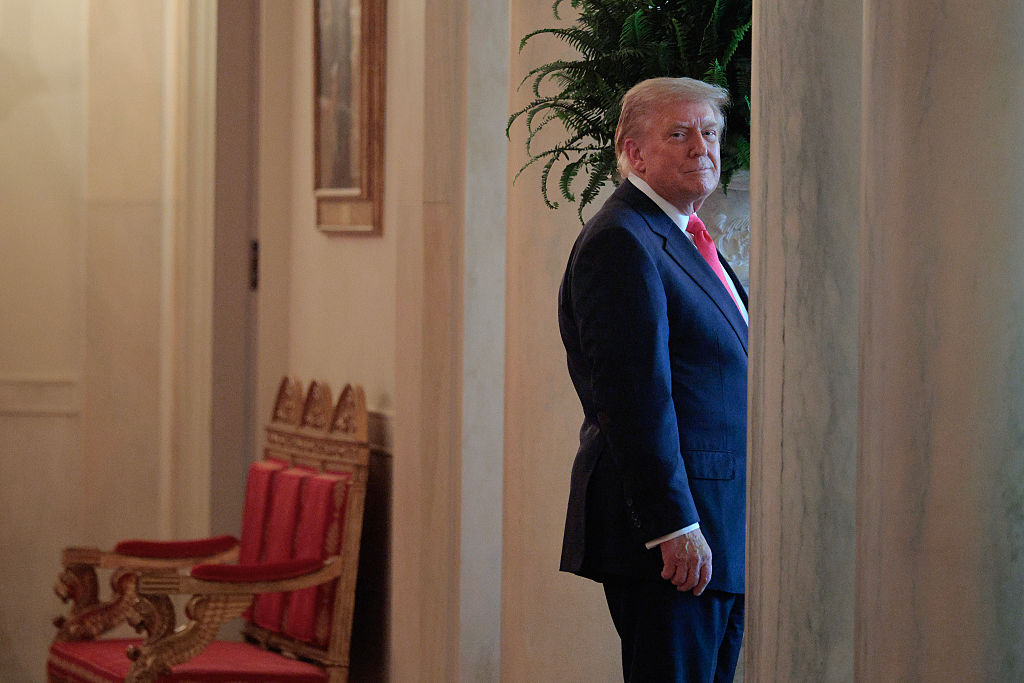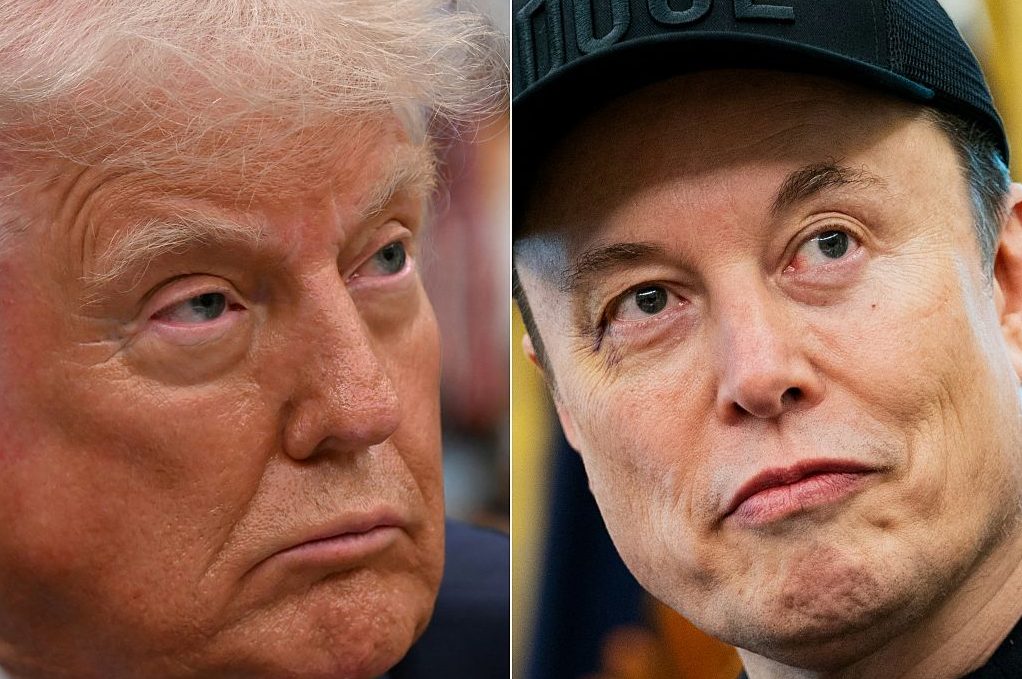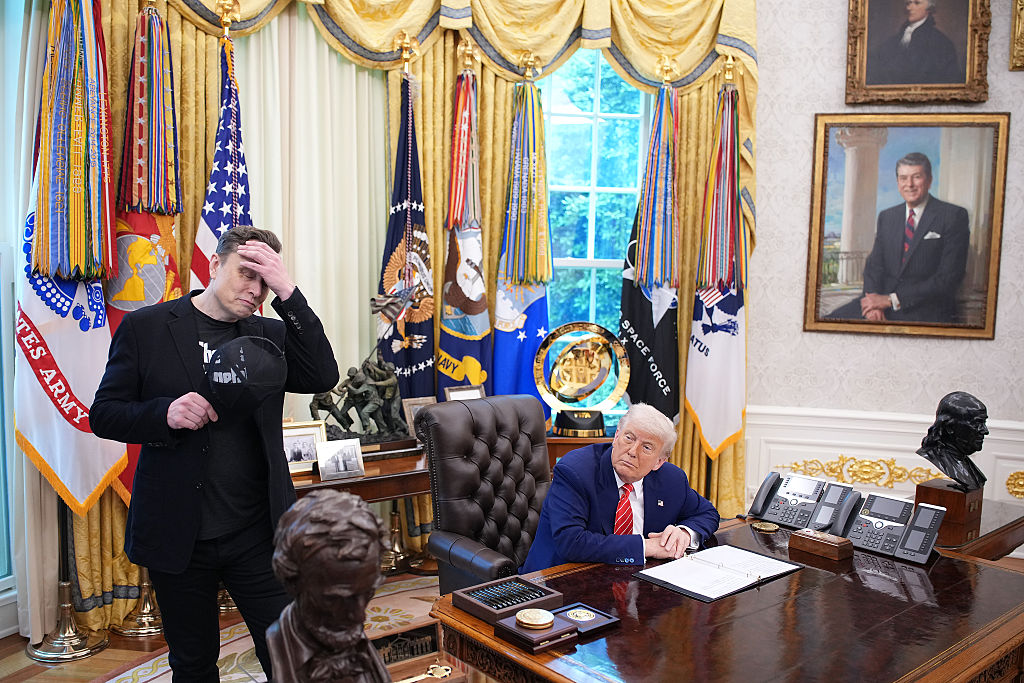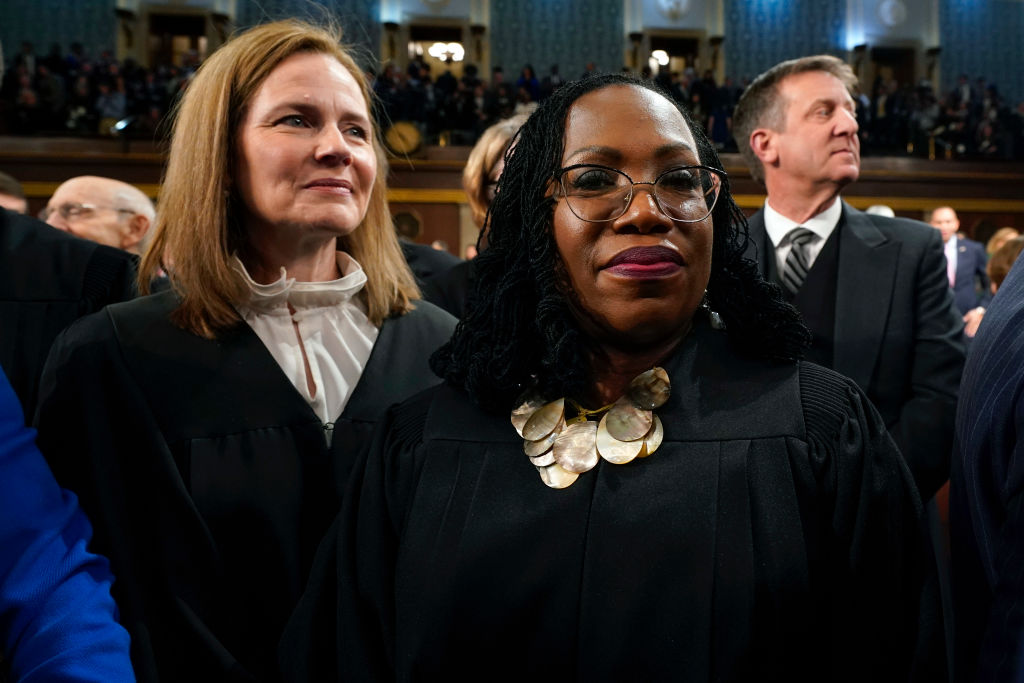When Donald Trump took his famous escalator ride, the Republican party was too attached to abstract principles at the expense of the material interests of its own voters. It wasn’t even doing a particularly good job of adhering to its preferred ideological abstractions. Whatever the Democratic party’s ideological failings, its leadership understands the importance of delivering tangible benefits to the electoral coalition that puts them in power (although their newfound suburban voters could be in for a rude awakening if the Democrats ever get too much power).
Trump presented an opportunity to change this. As was the case with most of Trump’s innovations on the GOP’s agenda and conservative doctrine, such as the imperative of ceasing ‘endless wars’, he did more to make it easier for intellectuals and even ordinary Republicans to speak about these issues differently than to compel the party to govern differently. In 2017, when official Washington was still in shock, actual MAGA types were in meaningful positions in the White House and the new President had some political capital to spend, Trump made the understandable but in retrospect obviously mistaken decision to make peace with the Republican governing class by deferring to the party’s congressional leadership.
Still, changing the conservative discourse is not insignificant. But there will be immense pressure to change it back. First, unless Joe Biden really makes good on his pledge to be a unifying figure — which would require him to violate dozens of other campaign promises — there will be a sort of default libertarianism among congressional Republicans as they resist the new Democratic administration’s spending proposals. This was the case when Bill Clinton and Barack Obama took office as well. Their credibility will take a hit, given their mostly blasé attitude to the $3.7 trillion deficit in Trump’s final year, which likely would have topped $1 trillion even if there had been no pandemic. But the Democrats do want to spend a great deal of money, even more than Obama and (especially) Clinton did.
For many of the populists and nationalists who have taken flight under Trump, the return of libertarianism will be the right’s biggest problem. But unless it manifests itself by treating COVID-19 relief spending no differently than the Wall Street bailout (for completely ideological and partisan reasons), or confusing a supine posture toward China with a robust defense of free markets, this will be the least of its problems. Republicans under Trump spent too much money for no obvious purpose. The Democrats want to spend even more. If stymied by Congress, they will grow the administrative state. Most of this should be opposed, with the arguable exception of some infrastructure improvements that should have been undertaken by Trump.
The greater problem will be those who want to turn back the clock to when George W. Bush was president (when Republicans also spent too much money, frequently for obviously destructive purposes). Some neoconservatives were too involved in NeverTrump circles (which by the end of 2020 had degenerated into a warmongering version of Democratic partisanship) to return to the GOP fold in the near future. Even the better, more principled NeverTrumpers often practically seethe with contempt for real-life Republican voters. But many more neocon-friendly Republicans are well-placed to regain positions of prominence, hammering away at any Biden diplomatic initiative as something out of Neville Chamberlain’s oeuvre.
The politicians Trump left best situated to succeed him are decidedly of the Bushie variety. Vice President Mike Pence resembles a comedian doing a mediocre Dubya impression. Former UN ambassador Nikki Haley is a classic Weekly Standard cover girl. Sens. Tom Cotton of Arkansas and Marco Rubio of Florida were the great neocon hopes of the Tea Party wave. Jeff Sessions, the former Alabama senator and attorney general who was a Trumpist before Trump himself, by contrast, was finished off politically by the President’s own hand.
Some of them may have learned valuable lessons from the failures of Bush and the opportunities presented by Trump. Cotton clearly has, as have some of Rubio’s top staffers, at least. But as we saw when Ronald Reagan was replaced by the original George Bush, succession matters. And Reagan, unlike Trump, was a popular two-term president. The temptation for backsliding will be overwhelming.
It is important, then, to remember that Trump has left the Republican party in much better shape than Bush 43 did. The painter who shares candy with Michelle Obama gave way not only to his confectionery buddy as president, but also to three-fifths Democratic majorities in both houses of Congress. After Trump, Republicans may still retain the Senate. They are within striking distance of recapturing the House.
Trump was once again competitive in Michigan, Pennsylvania and Wisconsin. That shows his performance in the Rust Belt was not a product of running against Hillary Clinton. He did nearly as well against Working Class Joe, even if he came up short. Had Trump maintained his 2016 level of suburban support, he would have once again won all three states and another four years in office. That was by no means guaranteed: Republicans haven’t really even competed in these states at the presidential level since the 1980s, with Pennsylvania in particular being the GOP’s great white whale.
This is yet another mark in favor of Trump. Unlike the authors of the famous Republican National Committee ‘autopsy’ following Mitt Romney’s 2012 defeat, Trump was actually able to deliver the voters who were crucial to his supporters’ theory about how he could win the election. He won vast majorities of working-class whites and was able to do respectably among Hispanic voters, especially in critical battleground states like Florida, and without betraying his base on immigration. Trump appears to have easily won a larger share of the Latino vote than John McCain and attracted nearly one in five black men to the Republican ticket despite minority outreach that was often as ham fisted as it was earnest.
Even in defeat, Trump won north of 200 electoral votes. It is far more obvious what the Republican path to 270 is following his loss than it was after Romney or McCain’s defeats. Bill Clinton plotted his path to the presidency by targeting any state where Michael Dukakis won at least 45 percent of the vote (following a race where Dukakis won only ten states). Anywhere Trump filed an election lawsuit ought to be on the GOP’s list in 2024. Trump broke 70 million votes nationwide despite the pandemic and high turnout, and his support was more efficiently distributed for Electoral College purposes than Romney’s.
But Bush Republicans are still well represented among the party’s establishment, ranging from potential government officials to political operatives. They are still thick on the ground in Congress, with Rep. Matt Gaetz of Florida probably being the only obvious full-spectrum Trumpist on Capitol Hill who is a member rather than a staffer.
As a businessman accustomed to barking orders at underlings, Trump did not understand until too late the importance of staffing his administration with people who actually agreed with him. The political operative with whom he had his strongest relationship, Roger Stone, was too problematic to even employ in the campaign. Trump had no Washington relationships outside of being an intermittent and bipartisan campaign donor. Bush brought Karl Rove with him, as Obama did Valerie Jarrett. All Trump had were Jared Kushner and Ivanka Trump, who were really centrist Democrats, ill-suited to a populist administration even if the rest of the family seems to have gotten on board. Stephen Miller may have been the only senior official to be simultaneously loyal to the President, ideologically committed to his revisions of the Republican agenda and skilled enough to survive four years of backstabbing and bureaucratic warfare.
The fact that there were such steep disagreements between Trump and Dubya on trade, immigration and foreign policy, and that these differences were central to the whole America First project, meant that it simply would not do to staff the new Republican administration with figures from the last one. Yet because of the talent pool that was available, this was largely what was done. That and Trump’s failure to appreciate that there was more to a president’s relationship with a bureaucracy often stacked against even conventional Republicans than pressing the button to order a Diet Coke.
Not only did this hamper Trump’s ability to govern when he was in the White House; it will now make it more difficult to sustain the momentum for national conservatism. The departing president talked like a blue-collar Yoram Hazony while padding the résumés of Ivy League David Frenches. (This is not necessarily true of the young guard in the White House or Trump’s reelection campaign, but it could take these Trump alumni longer to ascend the GOP power structure.)
Obituaries for the ‘dead consensus’ notwithstanding, there are reasons conservatives cannot let go of Reagan. Yet the challenges the country faces look increasingly different from those of the 1980s, and the tensions between Reagan’s affection for small-town America and his enthusiasm for untrammeled global commerce grow more apparent. Nobody since Reagan on the Republican side has combined his charisma with conviction or enjoyed as much governing success. And while Reagan did change the party, it was limited. Conservatives hoped he was John the Baptist but — to extend the mildly blasphemous — he appears to have been Jesus with no Resurrection or Second Coming.
Trumpism doesn’t have anything like the supporting institutional framework that existed, and still exists, for Reaganism. Tucker Carlson may be the Trump era’s Rush Limbaugh, with all due respect to the still-influential Cape Girardeau original. Carlson can make a plausible claim to be its William F. Buckley Jr, with his combination of print and television acumen, plus founding a media organization, the Daily Caller, which launched the careers of the most promising young nationalists and populists on the right. There is a gap that it may take more than Trump TV to fill.
It is easy to imagine someone without Trump’s flaws: a leader without the tweeting and the temperament, the narcissism and inability to rise above petty squabbles; a figure with a greater command of policy details who, realistic about the limits of America’s ability to go abroad in search of monsters to destroy, does not occasionally sound as if he admires the monsters. We may not have to try very hard to imagine would-be successors who lack Trump’s talents: the ability to command the attention of a television audience, willingly or not, and to inspire the affection of millions of Americans. To be hated less than Trump may not accomplish much if a lesser Trump is not loved as much.
Trump was, if nothing else, a political entrepreneur who found an underserved market and tried to serve it. Whether the political party that prides itself on representing entrepreneurship can be similarly entrepreneurial without him remains to be seen.
W. James Antle III is the politics editor of the Washington Examiner and author of Devouring Freedom: Can Big Government Ever Be Stopped? This article was originally published in The Spectator’s December 2020 US edition.



